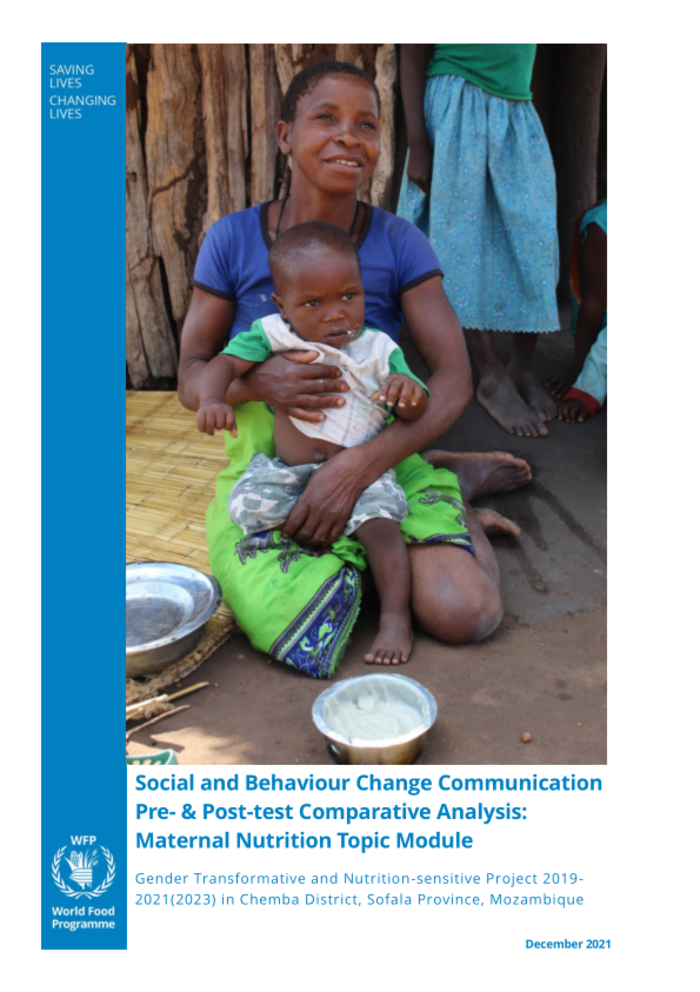Executive summary
Social and behavior change communication (SBCC) is an evidence-based strategy to improve health and nutrition by increasing and improving knowledge, attitudes and practices (KAP). The Gender Transformative and Nutrition-Sensitive (GTNS) project implements SBCC activities, alongside resilience and post-harvest loss interventions, with the aim of contributing to the empowerment of women and the reduction of stunting among children in Sofala, Mozambique. The SBCC strategy uses three approaches to achieve this goal: community mobilization, interpersonal counseling and media. Activities under the three approaches are classified into three main themes within the project: Nutrition,
Gender and sexual and reproductive health.
The nutrition theme is subdivided into four thematic modules: infant and young child feeding (IYCF), maternal nutrition, malaria prevention, and sanitation and hygiene. This report focuses on the interpersonal counseling approach of the Maternal Nutrition Thematic Module. These sessions targeted all 1,500 project households, particularly people caring for children under 2 years old and their spouses.
When implementing SBCC activities specifically aimed at reducing or preventing stunting, careful monitoring is essential, as behavior change is a slow process and may not have an impact significant on the project results if we only examine the final indicators.
However, this does not mean that project efforts are not progressing at the individual level. Close monitoring of knowledge, attitudes and practices related to stunting reduction and prevention can help project implementers better understand the desire for change and actual change linked to desired outcomes. To measure the influence of the project on beneficiaries, the project conducted pre- and post-test surveys on a sample of approximately 120 beneficiaries immediately before and after each thematic interpersonal counseling module, focusing questions on knowledge, intention, self-efficacy (confidence) and self-evaluation. -reported behavior. Using a comparative analysis, this report presents the results regarding the thematic module on maternal nutrition.
The pre- and post-test questionnaire on maternal nutrition included eight questions divided into four categories:
• recall key messages on maternal nutrition
• understand the impact of a mother’s health on the first 1,000 days of her life
• a mother’s health and diet during pregnancy and breastfeeding
• the role of men in maternal nutrition
Project beneficiaries in Chemba district associate good nutrition with a healthy pregnancy and are aware of the impact that nutrition and care have on the health of infants and their mothers. The pre-test results reflect this wisdom, indicating a good amount of knowledge, supportive attitudes and good practices regarding maternal nutrition.
Nevertheless, the results demonstrated a clear positive influence on all 8 indicators when comparing pre- and post-test results for maternal nutrition, particularly understanding the need for pregnant and lactating women to attend regular check-ups. health and having a diversified and balanced diet.
